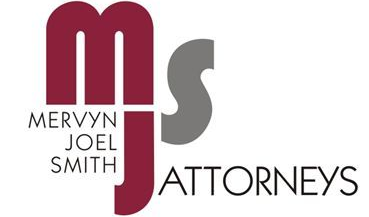The Minister of Finance, Mr Enoch Godongwana, has, in terms of section 77(1)(a) of the Financial Intelligence Centre Act, 2001 (Act 38 of 2001) (FIC Act), revised the threshold for cash transaction reporting. The threshold for reporting cash transactions is contained in the Money Laundering and Terrorist Financing Control (MLTFC) Regulations.
The amended MLTFC Regulations were published in Government Notice No. 2638 as published in Government Gazette No. 47302 on Friday, 14 October 2022. The new threshold on reporting cash transactions will be effective from 14 November 2022. Download the amendments here.
The Minister’s amendments of the MLTFC Regulations to effect the new cash threshold reports (CTRs) follows the publication of draft Regulations by National Treasury on 28 February 2019 for comments. Comments that were received from stakeholders during the comment period were taken into consideration where relevant.
Section 28 of the FIC Act requires accountable and reporting institutions to report information on cash transactions exceeding the prescribed threshold to the Financial Intelligence Centre (FIC). The Minister of Finance has, after consulting with the FIC, approved the revision of the CTR threshold from the current threshold of R25 000 to R50 000. In terms of the revised threshold, accountable and reporting institutions will be required to report any cash transactions of R50 000 and above to the FIC. The current threshold of R25 000 has been in operation since October 2010.
Cash threshold reporting is one of several regulatory reporting obligations for accountable and reporting institutions listed in Schedule 1 and Schedule 3 to the FIC Act respectively. Central to its mandate, the FIC interprets and analyses the regulatory reports it receives to develop financial intelligence for use by law enforcement and other competent authorities in their investigations, prosecutions and applications for forfeiture of assets. Analysis of CTRs is important in helping to decipher possible underlying crime patterns and trends, as well as syndicated or cash-intensive criminal activity.
The key changes to the CTR framework approved by the Minister are:
- The revision of the CTR threshold from R25 000 to R50 000
- The revision of the period within which transactions that meet the threshold of R50 000 must be reported to the FIC, from two business days to three business days from the date on which the accountable or reporting institution, or any of their employees, have become aware of the transaction
- The abolition of the requirement to report on CTR aggregation (CTRA). Currently, cash transactions where a single client has performed multiple transactions with a combined value of R25 000 and above within a defined period are reportable as one report to the FIC. With the revised regulations, this will no longer be a requirement. It is anticipated that the removal of the aggregation requirement will not negatively affect the generation of financial intelligence information, as split transactions that are suspicious and unusual would be reportable in terms of section 29 of the FIC Act.
Any outstanding reports that were due for submission to the FIC before the commencement of the amendments i.e. 14 November 2022 will still need to be submitted to the FIC based on the regulations applicable to that period. The CTRA report type will remain visible on the FIC’s registration and reporting system, goAML, to allow reporters to submit outstanding reports and to do remediations on CTRAs that might have been previously incorrectly submitted.
In the 2021/22 financial year, the FIC received more than 4.5 million cash threshold and cash threshold aggregation reports from accountable and reporting institutions. Other regulatory reporting streams in terms of the FIC Act include suspicious and unusual transaction reports (section 29), and terrorist property reports (section 28A). It is important to note that all businesses, whether listed in the FIC Act or not, are obliged to report transactions and/or activities that are deemed suspicious and unusual.
This article is courtesy of The Financial Intelligence Center
